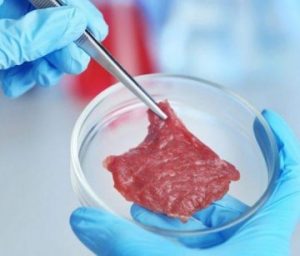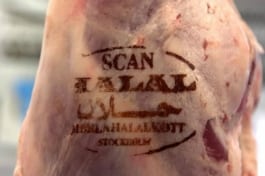 The halal certification organisations perform an important function. They issue halal meat certificates which accompany each consignment destined to Muslim countries. There are hundreds of these organisations worldwide. Some are better staffed and equipped than others to perform monitoring and verification activities. The verification activities are needed because the increased globalisation and complexity of the global meat industry has resulted in an increased risk of food fraud and cross-contamination with meat of other species.
The halal certification organisations perform an important function. They issue halal meat certificates which accompany each consignment destined to Muslim countries. There are hundreds of these organisations worldwide. Some are better staffed and equipped than others to perform monitoring and verification activities. The verification activities are needed because the increased globalisation and complexity of the global meat industry has resulted in an increased risk of food fraud and cross-contamination with meat of other species.
According to one report 20% of the samples of sausages labeled as containing only one type of meat were found cross-contaminated with meat of other species. For example, sausage labeled as ‘beef only’ also had pork in it. When the lab-grown meat hits the market, it could become another source of cross-contamination. How the lab-grown meat is defined by its regulatory agency is going to make a difference. The question that the halal meat consumers would like to be answered is: What are the halal certification organizations up-to in the labeling debate?
A review of the events indicates that investors like billionaire Bill Gates and agriculture giants Cargill and Tyson, in the United States, are optimistic about the future of lab-grown meat, which they believe is eco-friendly. Some other countries like Israel are also investing in this technology. As the new technology often brings new concerns, the US Cattlemen’s Association filed a petition requesting the United States Department of Agriculture’s Food Safety and Inspection Service (USDA, FSIS) that FSIS exclude so-called “lab-grown meat” from the definitions of “beef” and “meat”. At that point, FSIS asked interested people to submit their comments. As a concerned Muslim, on May 5, 2018, I submitted the following comments:
1) Since, no animal slaughtering is involved in the production of lab-grown meat, the Islamic religious scholars may find it not meeting the Islamic requirements. This can potentially impact upon the export of halal meat from the United States to the Muslim countries.
2) For whatever reason, some consumers may want to avoid the lab-grown meat. Therefore, lab-grown meat should be clearly stated on the product label so that consumers can make an informed decision at the grocery store.
3) Whichever regulatory agency’s jurisdiction the lab-grown meat is placed under, the shape of the federal “inspection seal” should be different than the circular shape currently used for the livestock and poultry products.
The debate on how lab-grown meat is to be labeled continues and some states, such as Missouri, have passed bills that only conventional meat gets to be labeled as “meat” to protect the traditional agriculture. It would be nice if major halal certifications organisations could come up with their views on lab-grown meat, through “Ijtehad”, and let those views be known to public. Public awareness of their views will help many consumers to make an informed decision when meat and poultry products, grown in the laboratories, become available in the supermarkets and restaurants.
The writer is former employee of the United States Department of Agriculture’s Food Safety and Inspection Service (USDA, FSIS), the agency that regulates the meat industry.



